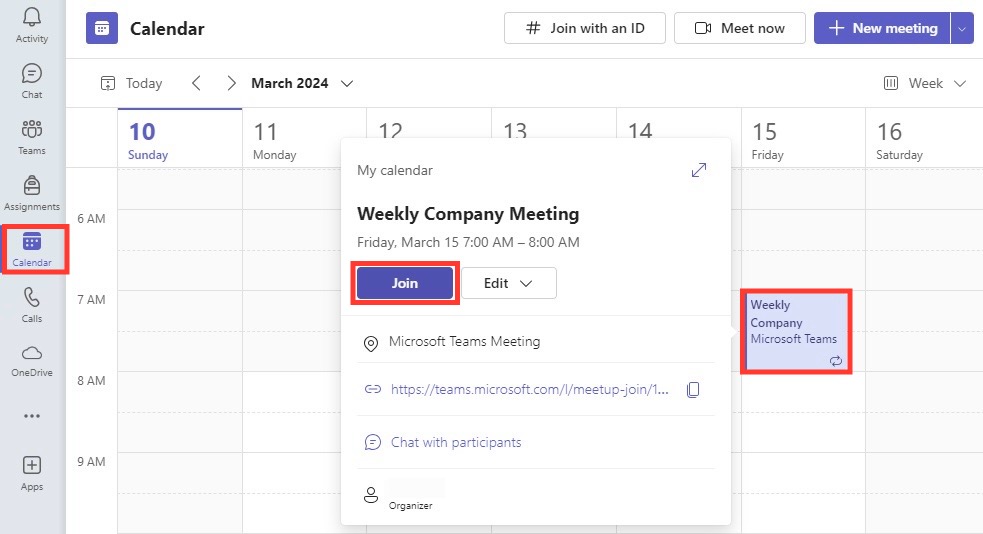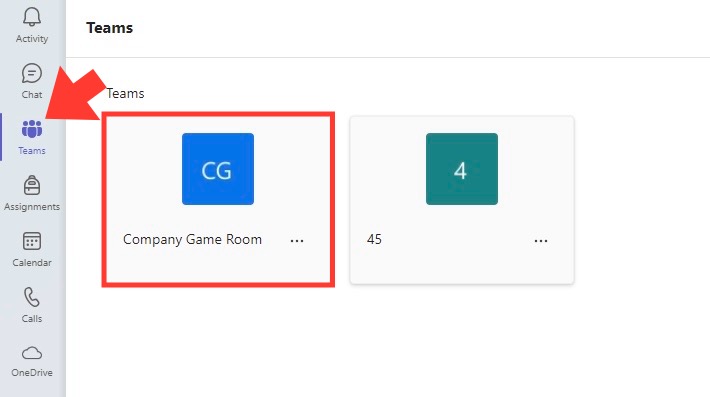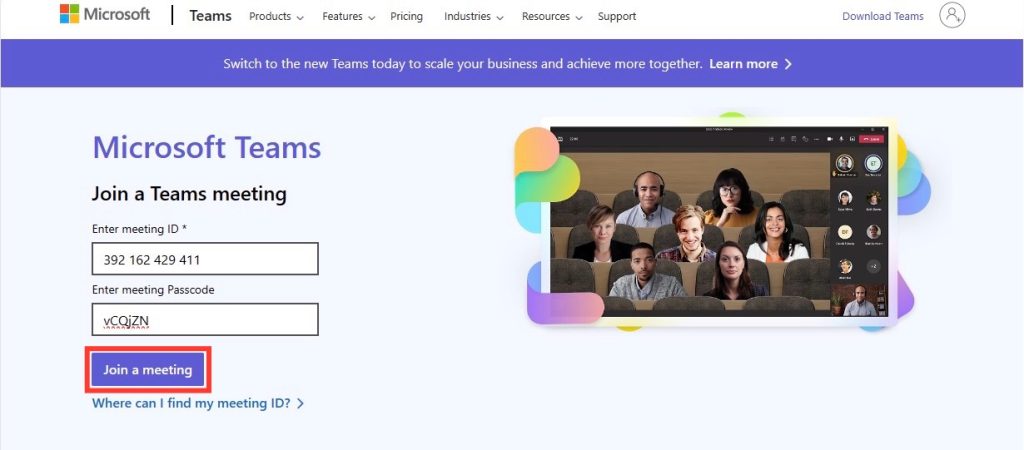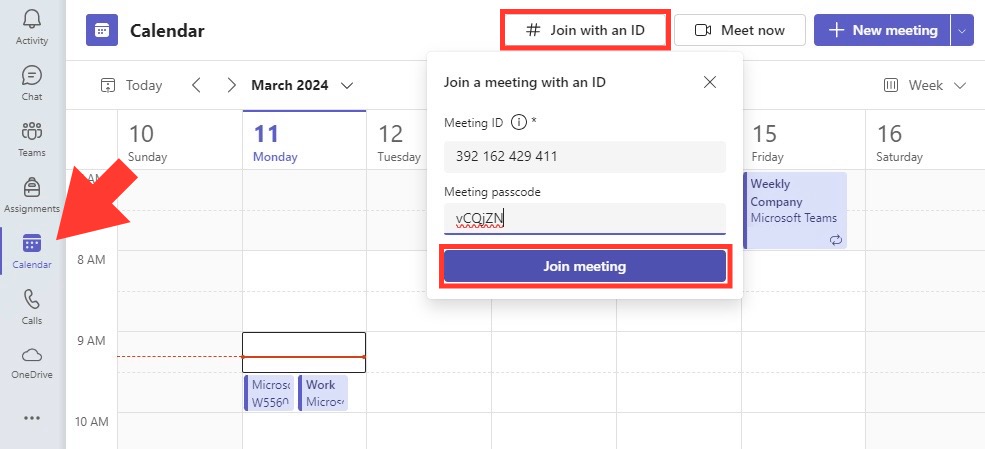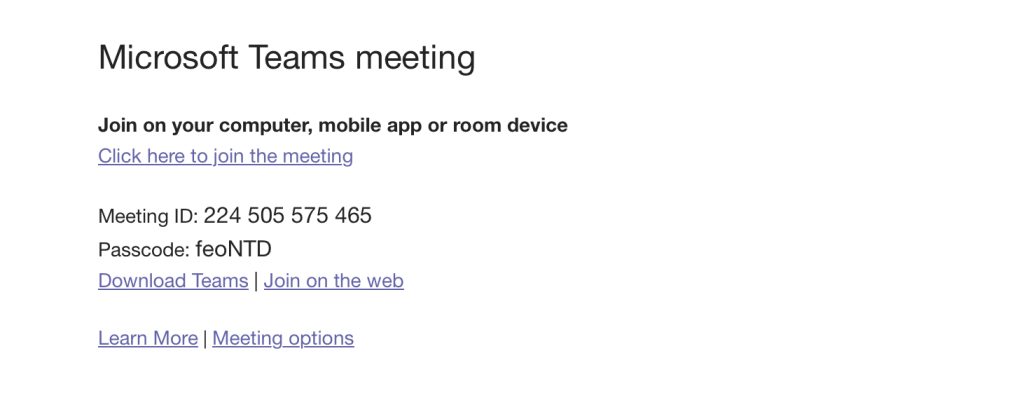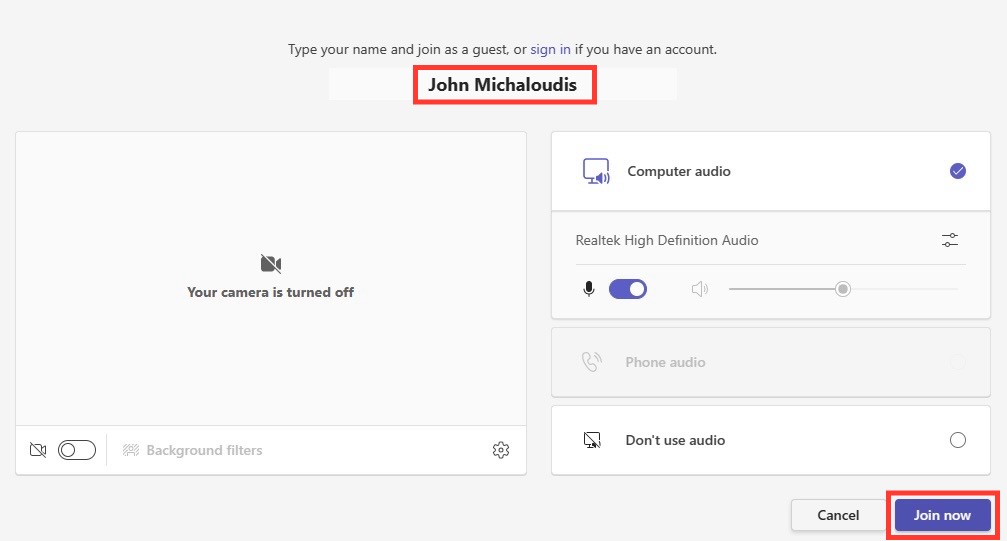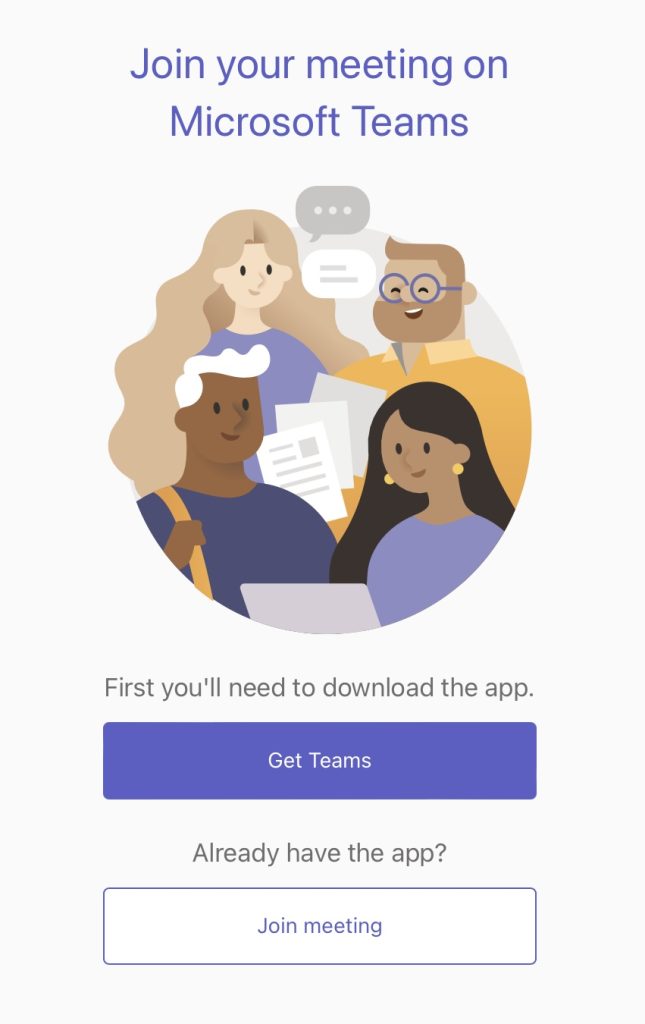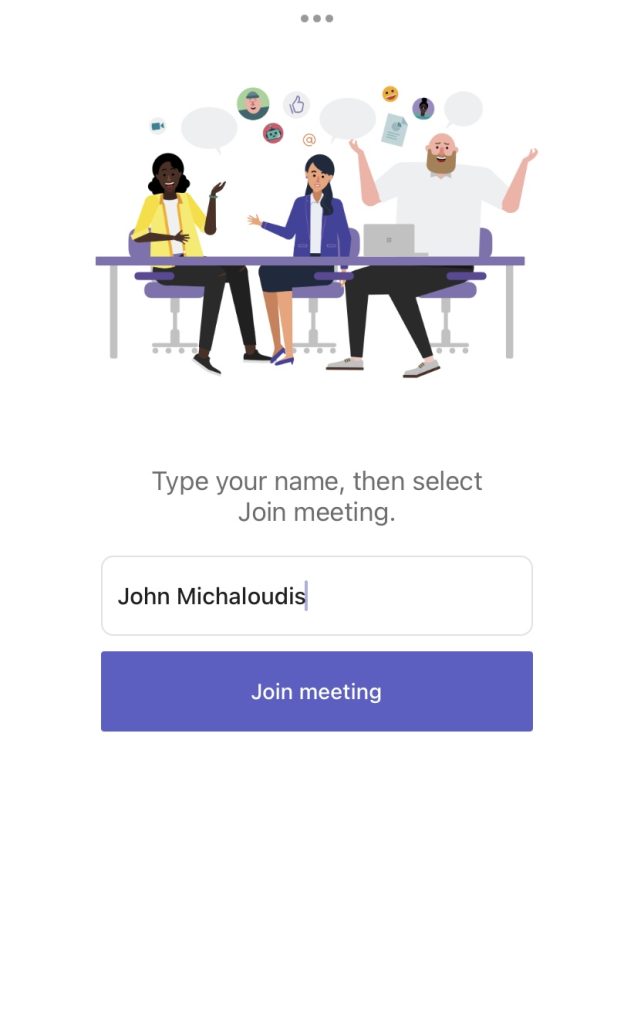Learn our Top 7 Excel Interview Questions to Land Your Dream Job!
Understanding Microsoft Teams’ Interface and Accessibility
Navigating a new platform can be daunting, but don’t worry, Microsoft Teams is designed for ease-of-use and accessibility. When you first log in, you’ll see the main dashboard which intuitively points you to all the vital functions: activity feed, chat, teams, calendar, and more.
For those of you who are visually impaired or have other accessibility needs, Microsoft Teams has various features, such as keyboard shortcuts and screen reader support, to ensure you can work comfortably and efficiently. The more familiar you become with the interface, the easier your experience will be when it’s time to join a meeting.
Key Takeaways
- To join a Microsoft Teams meeting, locate the invitation with details like date, time, and unique code, open Teams, find the meeting in your Calendar, and click “Join” to connect.
- For a productive meeting experience, be prepared, use video, stay muted when not talking, and actively participate through video, chat, and by volunteering for tasks.
- If joining with a link, ensure you’ve clicked the provided invite link, checked your audio and video settings, and hit “Join Now” to interact in the meeting, with a stable internet connection and no unnecessary apps or tabs open.
Table of Contents
Step-by-Step Instructions to Join a Teams Meeting
Joining Through an Invitation Link
Accessing the Meeting via Calendar Entry
Discovering your scheduled meetings in Microsoft Teams is straightforward once you know where to look. Here’s how to access them via the calendar entry:
STEP 1: Open Microsoft Teams and click on the “Calendar” tab on the left-hand side. This brings up your Microsoft Teams calendar, mirroring your Outlook calendar if they’re synchronized.
STEP 2: Browse through the calendar to find the date and time of your meeting. Meetings you’re invited to will appear here as colored blocks.
STEP 3: Click on the specific meeting block, and you’ll see a pop-up with details of the event.
STEP 4: In this pop-up, there’s a “Join” button – click it when it’s time for the meeting to commence.
Tip: You can also RSVP to meetings from the calendar view, letting others know if you’ll attend.
Remember to check the settings for your camera and microphone once you’ve joined to ensure you are ready to participate.
Alternative Ways to Enter a Teams Meeting
Join From a Chat or Channel
Joining a Microsoft Teams meeting from a chat or a channel is just as seamless as other methods, and here’s how:
From a Chat:
STEP 1: Navigate to the “Chat” section on the left side of your Microsoft Teams application.
STEP 2: Select the conversation where the meeting was organized.
STEP 3: At the top of your chat window, if a meeting is ongoing or about to start, you’ll see a “Join” button. Click it to enter the meeting.
From a Channel:
STEP 1: Click on “Teams” in the left-hand navigation bar.
STEP 2: Choose the appropriate team and then the specific channel where the meeting is happening.
STEP 3: If the meeting is active, you should see a “Join” prompt near the channel’s posts. Click “Join” to participate in the meeting.
Note: The ability to join from a chat or channel depends on how the meeting is set up by the organizer. It’s a convenient way to hop into discussions that are being held within the context of ongoing team collaboration.
Entering a Meeting with a Code
If you have a Microsoft Teams meeting code, joining the conversation is a cinch—no need to juggle links or search your emails! Just follow these simple steps:
STEP 1: Launch the Microsoft Teams app or go to the Teams web portal.
STEP 2: Click on “Join” or select the “Calendar” tab and then “Join with a code” from the top right corner.
STEP 3: Enter the code provided by the meeting organizer into the relevant field.
STEP 4: Hit “Join now” to enter the meeting space.
When you enter with a code, you bypass the clutter and get straight to your meeting, ensuring you’re exactly where you need to be with minimal fuss.
Joining a Teams Meeting on Different Devices
On Desktop and Web Browser
Whether you prefer the full app experience or a browser’s convenience, joining a Microsoft Teams meeting from your desktop is a breeze.
On Desktop App:
STEP 1: Open the Microsoft Teams desktop app.
STEP 2: If you’re a logged-in member, find the meeting in your calendar, click on it, and then hit the “Join now” button.
STEP 3: As a guest, click on the invitation link you received via email, which will automatically launch the desktop app.
On Web Browser:
STEP 1: Click on the “Click here to join the meeting” link in your email invitation.
STEP 2: You’ll be presented with options. Choose “Continue on this browser” if you’re not using the Teams desktop app.
STEP 3: Enter your name, and set up your audio and video preferences before clicking “Join now”.
Sharing the same functionality, the desktop and web versions of Microsoft Teams offer a rich, accessible experience, ensuring you don’t miss a beat in meetings whether you install the app or not.
On Mobile Devices: Android and iPhone
Joining a Microsoft Teams meeting on-the-go is just as effective as from your desktop. Here’s what you need to do on your Android device or iPhone:
STEP 1: Make sure the Microsoft Teams mobile app is downloaded and installed. You can get it from the Google Play Store or the Apple App Store.
STEP 2: Open the Teams app and sign in with your credentials, or as a guest, use the invitation link sent to your email which will open the meeting in the app.
STEP 3: To join through the app without a link, tap on “More” (with the three dots or the icon depending on your device) and select “Calendar” to view your scheduled meetings.
STEP 4: Find your meeting, tap on it, and then select “Join.”
Joining a meeting from your mobile device ensures you never skip a beat, even when away from your desk. Whether you’re using an Android tablet, an iPad, an iPhone, or an Android phone, the process ensures a smooth transition into your virtual meeting room.
Remember to allow the app to access your microphone and camera for full participation.
Participating in the Meeting
Navigating the User Panel
When you’re participating in a Teams meeting, navigating the user panel effectively can enhance your experience and interaction with others. Once you’ve joined, the user panel is your command center for the meeting. It typically appears at the top of the screen, containing several icons for different functions:
- Camera: Toggle your video feed on or off with the camera icon, letting you control your visibility to others.
- Microphone: The mic icon allows you to mute or unmute yourself, ensuring that you can contribute to the conversation without background noise when you’re not speaking.
- Screen Share: This feature, symbolized with a screen and an arrow, lets you share your screen – choose from specific applications, web browser tabs, or your entire screen depending on what you wish to showcase.
- More Options: This ellipsis icon opens up additional functionalities, like recording the meeting or adjusting device settings.
- Chat: During a meeting, you can use this feature to type messages or see text interactions shared by other participants without interrupting the speaker.
Learning to use these tools will help you become an active and engaging meeting participant. Take a few moments before the meeting starts to familiarize yourself with these icons and their functions.
Sharing Your Screen and Collaborating
Sharing your screen during a Microsoft Teams meeting is integral for collaboration and presenting information. Here’s how to do it smoothly:
- Your Entire Screen: If you have multiple monitors, they’ll be listed here. Select the one you want to share. Everything visible on that screen will be displayed to participants.
- Application Window: To share a specific application (like a PowerPoint), find it on this tab so that only that window is visible to others.
- Web Browser Tab: Shares only a single browser tab that’s open, maintaining the privacy of your other tabs.
Proactive communication and clear screen sharing are powerful tools in Microsoft Teams, enabling you to present data effectively, workshop ideas in real-time, and make sure everyone’s on the same page.
Troubleshooting Common Joining Issues
Solving Audio and Video Problems
Encountering audio and video issues during a Microsoft Teams meeting can be frustrating, but they’re often easy to fix. Here’s what to do:
- Check Your Device Settings: Make sure your microphone and camera are permitted for use by Teams. In the Teams settings, you can select the correct devices you want to use.
- Test Before Joining: Use the pre-meeting audio and video setup to test your equipment. Look for the speaker icon to test your speaker and the mic to ensure you’re heard.
- Trouble with Microphone: If others can’t hear you, make sure you’re not muted. Increase the microphone volume in settings if necessary.
- Video Isn’t Working: Verify that your camera is plugged in or, if it’s integrated, it’s not covered or blocked. Make sure the video icon isn’t slashed out, indicating it’s off.
- Restart Teams or Your Device: Sometimes, the quickest way to clear issues is to restart the application or your device.
Remember, good audio and video quality depends on a stable internet connection. If problems persist, consider troubleshooting your network or consulting your device’s support resources.
Joining When the Invitation Link Isn’t Working
If the invitation link to a Microsoft Teams meeting isn’t working, don’t let that hold you back. Try these solutions:
- Check the Link: Make sure the link hasn’t been truncated in your email or message. Copy the entire link and paste it into your browser.
- Web Browser Compatibility: If clicking the link doesn’t redirect you correctly, manually enter the URL in a compatible web browser—Microsoft Edge or Google Chrome are recommended.
- Type the Meeting ID Manually: On the Microsoft Teams login page, you might have the option to enter the meeting ID directly if you’ve been given one.
- Join by Phone: Look for dial-in numbers and a conference ID in the invitation to join the audio portion by phone, while you troubleshoot the link issue.
Should these steps fail, contact the meeting organizer for a fresh link or additional joining methods, and check for any notifications of meeting cancellations or rescheduling.
Maximizing Your Microsoft Teams Experience
Tips for a Smooth Meeting
For a smooth Microsoft Teams meeting experience, preparing both technically and personally is key. Here are some tips to help you:
- Test Your Setup: Before the meeting, check your audio, video, and internet connection. Close unnecessary applications to optimize performance.
- Use a Headset: If possible, use a headset with a microphone for clearer audio, and to keep your hands free.
- Familiarize with Teams Features: Knowing how to mute, share your screen, and use the chat function can make for a more seamless meeting.
- Background and Lighting: If you use video, make sure your background is professional or use a Teams background, and have good lighting facing you.
- Meeting Etiquette: Mute yourself when not speaking, listen actively, and use non-verbal reactions or the raise hand feature to avoid interruptions.
Exploring Additional Features and Options
Maximizing your use of Microsoft Teams goes beyond the basics of joining a meeting. Here’s a look at additional features and options at your disposal:
- Live Captions: Enable live captions to follow along with what is being said, helpful in noisy environments or for those with hearing impairments.
- Meeting Notes: Take real-time notes within the Teams meeting window that participants can view and contribute to.
- Recording: Record meetings for later reference, ensuring you don’t miss important discussions—great for those unable to attend.
- Background Effects: Personalize your appearance with custom or blurred backgrounds, minimizing distractions and protecting your privacy.
- Breakout Rooms: For large meetings, use breakout rooms to divide participants into smaller groups for focused discussions or activities.
Leveraging these features contributes to a more inclusive, collaborative, and productive meeting environment.
FAQ: Frequently Asked Questions
How Do I Join a Microsoft Teams Meeting as a Guest?
Joining a Microsoft Teams meeting as a guest is easy. When you receive a meeting invite via email, click the “Join Microsoft Teams Meeting” link. Choose “Continue on this browser” if prompted. Enter your name to identify yourself in the meeting and click “Join now. Just make sure to use a compatible web browser for a smooth experience.
Do I need to download Microsoft Teams to join a meeting?
No, downloading the Microsoft Teams app isn’t required to join a meeting. You can join via a web browser by clicking the meeting link and selecting “Continue on this browser.” However, for a fuller feature set and potentially more stable experience, the app is recommended.
How do I join a Microsoft Teams meeting for the first time?
To join a Microsoft Teams meeting for the first time, click the meeting invite link received via email, which will open in a web browser. You can then opt to download the app or join directly from the browser. Follow the prompts to enter the meeting – if on browser, no installation is needed. If you choose to use the app, install it, sign in if you have credentials, or join as a guest.
What If I Don’t Have the Microsoft Teams App? Can I Still Join a Meeting?
Yes, even without the Microsoft Teams app, you can still join a meeting. Click the invite link and when prompted, select “Continue on this browser.” This option works best in Microsoft Edge or Google Chrome. Alternatively, dial into the meeting using the provided phone number and conference ID from the invite.
John Michaloudis is a former accountant and finance analyst at General Electric, a Microsoft MVP since 2020, an Amazon #1 bestselling author of 4 Microsoft Excel books and teacher of Microsoft Excel & Office over at his flagship Academy Online Course.
